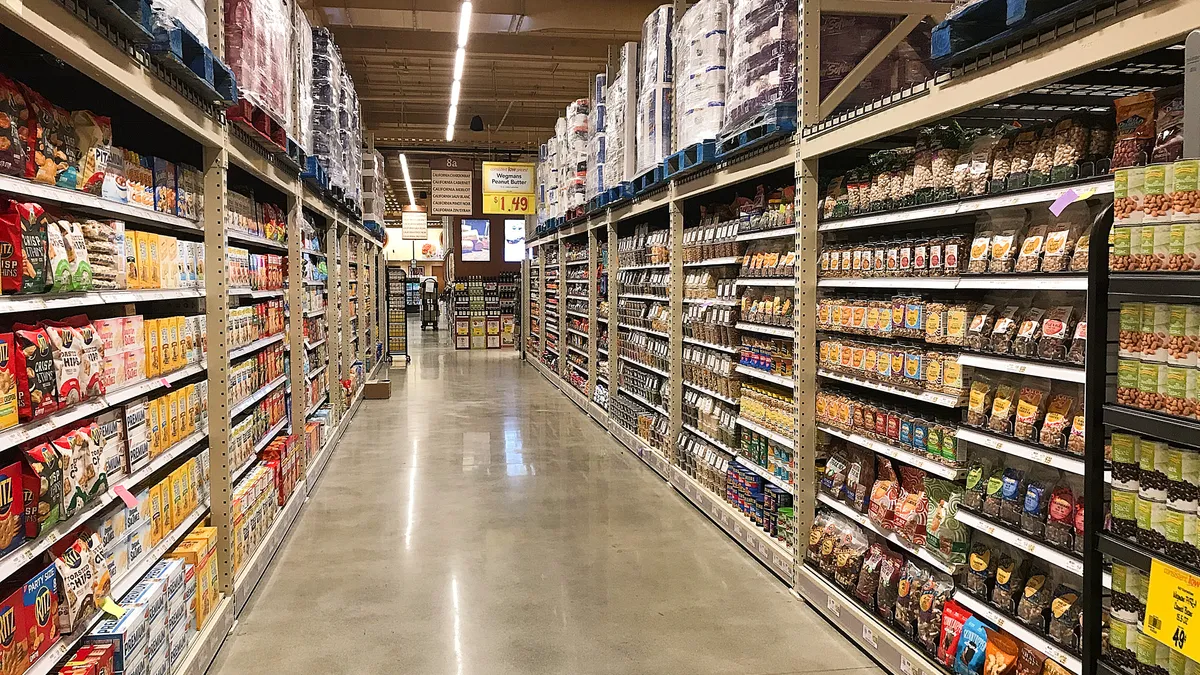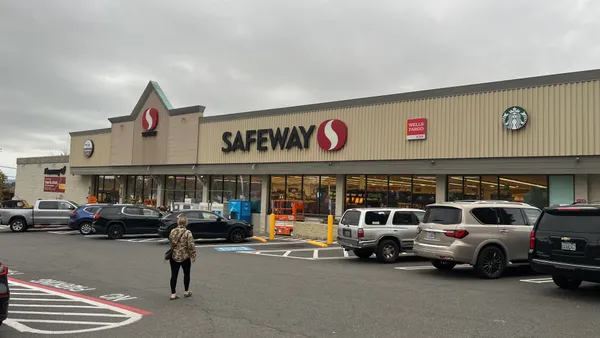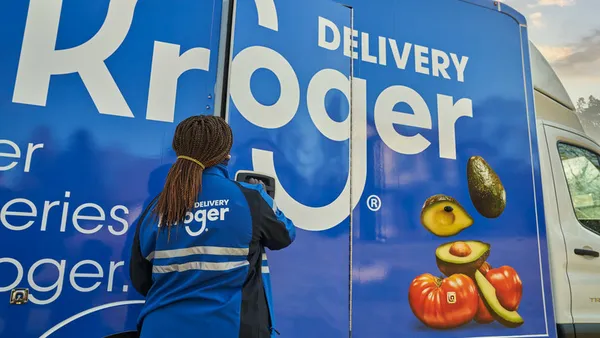Dive Brief:
- Private label is seeing continued investments within the food industry, with 91% of surveyed food retailers and manufacturers planning to significantly or moderately ramp up their private label efforts in the next two years, per the 2021 Power of Private Brands report from the Food Industry Association (FMI).
- In the grocery channel, private brand sales reached $64.3 billion in 2020, up 14.7% from 2019, and accounted for 16.8% of dollar sales in the channel, the report noted, citing IRI data.
- The pandemic has been a catalyst for change, the report found, with 77% of respondents saying they are changing or rethinking assortments and supplier strategies because of COVID-19, which has disrupted not only shopper behavior, but also supply chains.
Dive Insight:
Private brands saw a growth spurt in 2020, with sales up more than 12% compared to 2019, but they are now facing more competition in 2021 from national brands, per IRI data cited in the report.
"The pandemic caused disruption, and whichever products were available ended up as the winners,” Mary Ellen Lynch, principal at IRI, said in the report. “Private brands showed an early advantage in 2020, and national brands regained strength once companies were able to implement accelerated strategies to address supply issues and reach consumers."
As national brands overcome supply challenges, FMI’s report suggested several strategies that grocers can explore for private brands, including boosting brand awareness, reexamining supplier relationships and offering healthier options.
"Consumer demand for private brands in 2021 is expected to represent 95-100% of 2020 demand, according to IRI," Doug Baker, vice president of industry relations for FMI, said in a statement.
A key piece to unlocking private brand adoption is boosting brand awareness among shoppers, the report said. For example, grocers could use social media content to promote store brands.
With the report noting that suppliers and grocers are not always sharing priorities, grocers may find success in looking for alternate suppliers, like newer or smaller ones, and streamlining their product assortment. Of the companies surveyed, 70% are making longer-term agreements with suppliers and working more closely with existing ones. While finding new suppliers may not be easy, it may help grocers circumvent supply shortages.
Another avenue for grocers to look into is focusing beyond price and pushing "value" across their brand tiers, like promoting sustainability or health and well-being.
The survey also found that 58% of companies are adding new offerings focused on innovation and 52% are boosting e-commerce strategies in relation to private brands, which grocers could further tap into by ramping up online merchandising, the report found.
Building on FMI’s findings in an earlier report that 41% of surveyed shoppers said private label plays a very important part in deciding on a primary grocery store, The Hartman Group looked at what motivates customers to try products across a variety of categories. The top reasons were better taste (40%) and samples (28%), followed by higher quality (24%), lower prices than national brands (23%), coupons (20%) and recommendations from friends (20%), the newly released Power of Private Brands report found.
For future product releases, 39% of consumers said they want to see less expensive options, while 32% desire healthier versions of products they already buy.
“Some consumers focus on price value, but more and more it’s about price and value,” Baker said in the report.












